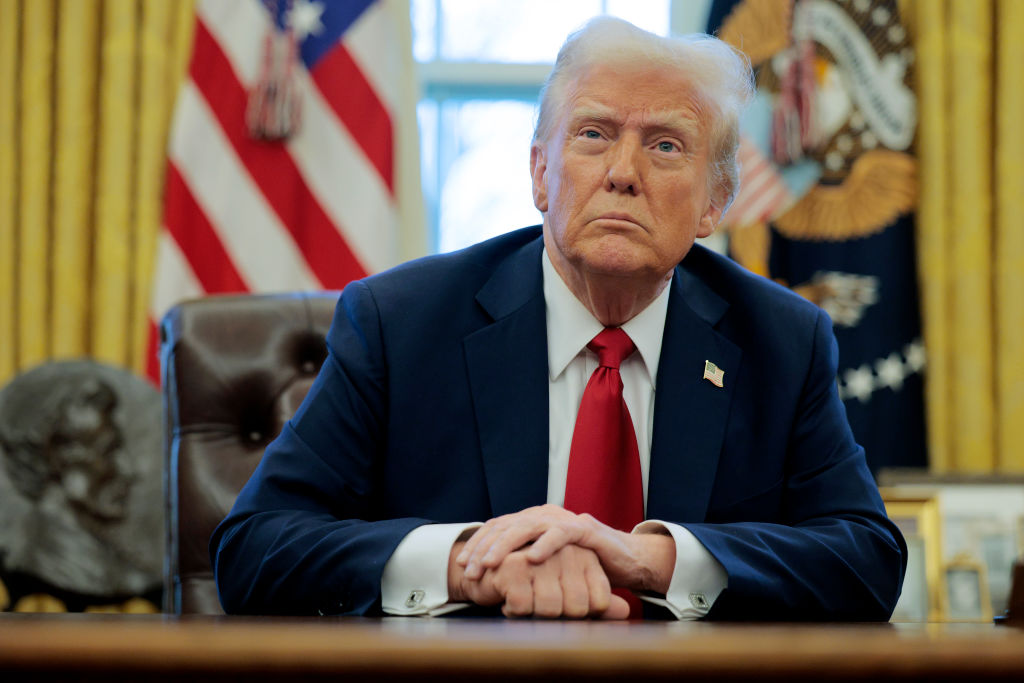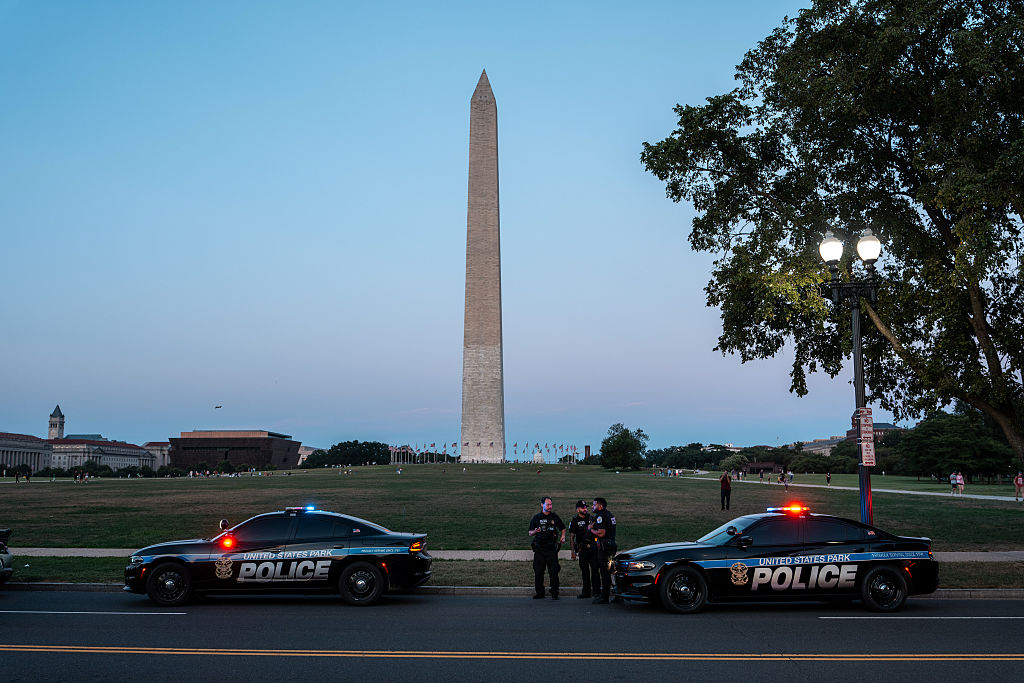Elon Musk’s Department of Government Efficiency (DoGE) continues merrily to chop programs and departments left, right and center. Federal diversity, equity and inclusion officials were suspended on his first day in office, prior to being given their marching orders. Government employees have been ordered to justify their existence by explaining what, if anything, they achieved last week. All of this ought to be a positive influence on how the US is governed. Some will claim it to be an ideological war waged by the Trump administration. Yet it is really just the same process that private corporations undergo constantly in their search for greater efficiency and profits.
Yet there is a chink in Trump’s strategy. What if in shrinking federal government he ends up emboldening state governments, especially the bossier Democratic ones? We have had a taste of what might be to come as the attorneys general of Massachusetts and Illinois wrote a letter contradicting an executive order purporting to ban DEI programs in private businesses.
“The federal government does not have the legal authority to issue an Executive Order that prohibits otherwise lawful activities in the private sector or mandates the wholesale removal of these policies and practices within private organizations,” the attorneys general wrote, adding that this included private companies which are bidding for government contracts. Firms can, and should, still offer anti-bias training, they asserted, as well as use data to identify disparities in employment, salaries and other things. The letter was signed by the attorneys general of fourteen other states, including New York and California.
While the federal government, and some Republican states, are going in one direction on DEI, Democratic-controlled states are resolutely heading in the other. California and New York have recently expanded DEI reporting requirements for large companies, strengthening pay transparency laws. Illinois and Washington have introduced mandatory DEI training for public employees as well as executives in large companies. In New Jersey and Massachusetts, there are new laws enforcing diversity hiring in any company seeking public contracts. In the opinion of state attorneys, these are all initiatives which cannot be canceled out by Trump’s anti-DEI stance.
As Matt Purple argues on p20, DEI isn’t just going to vanish because conservatives and anti-woke liberals say it’s gone. Over the coming months, many ambitious federal government officials who were working in the field of DEI are going to be searching for new employment, and it isn’t hard to guess where they will be seeking to build new empires: in state governments. These officials will inevitably be welcomed with open arms by states which want to distance themselves from the Trump administration and make a statement of how they intend to do things differently. They are likely to be driven to dream up initiatives on race, gender and sexual orientation which would never have been conceived of had they stayed in Washington.
Trump’s small-government agenda has unleashed a nineteenth-century-style battle between federal government and individual states. Moreover, it is one in which the states have some advantages. They are still spending big, with more human firepower than depopulated Washington. While the supremacy clause in the US Constitution establishes the presumption that where federal law and state law are in conflict it is federal law which will prevail, there is an exception. If state law grants citizens rights which do not exist in federal law, it is the state law which will take precedence. This is relevant when it comes to DEI because it revolves around granting people new rights. Trump did not perhaps start out with the intention of bolstering state-level government, but that is what he has achieved in practice. It is a similar story with abortion. While he wasn’t directly involved in the Supreme Court’s laying aside of Roe v. Wade — it was a decision made by judges appointed by him — that choice has tossed the abortion issue back to the states. Now we have pro-abortion states and anti-abortion states.
The growing partisanship of America has been much commented on in recent years, but policies which shrink or disempower federal government are driving new wedges between red and blue states. The country is becoming an ever more contrasting patchwork of liberalism and conservativism. That might make sense from the point of view of individual citizens who now have the option of settling in a state which most closely reflects their own views on social matters.
If you think DEI is good, go live in California. If your views on the matter are more Trumpian, you can move to Texas. But it doesn’t make life easier for businesses which have to operate across multiple state boundaries. One of the whole points of Trump’s war against DEI was to save government and businesses money. But we are heading for an environment in which businesses have to bear the cost of complying with multiple jurisdictions on DEI.
Trump’s swift actions to abolish DEI may have seemed like a series of deft blows. But this is only a partial revolution. If Trump really wants to stamp out DEI he will have to go far further and pass laws which specifically cancel out rights which have been granted at state level. The legacy of the war against DEI could, perversely, end up being more of it in some parts of the country.
This article was originally published in The Spectator’s April 2025 World edition.


























Leave a Reply